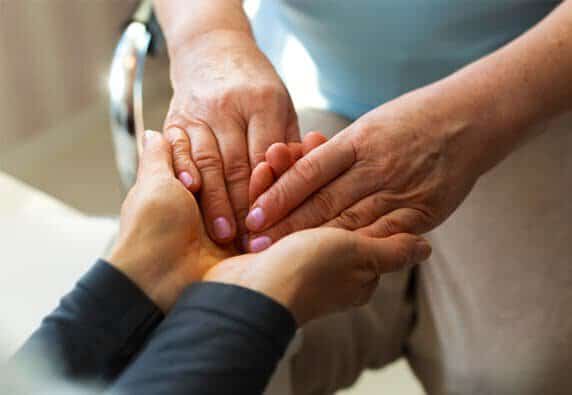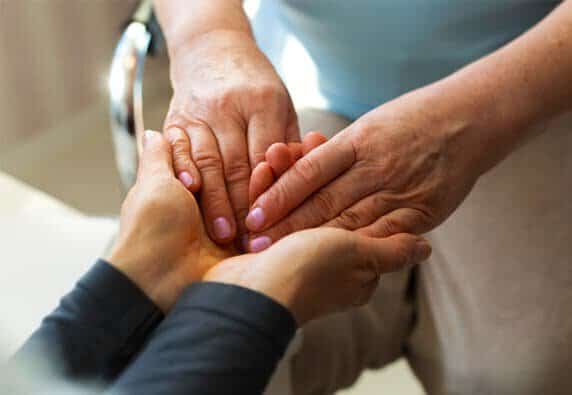
Involvement of the family in dealing with the loved one’s chronic pain can be game-changer. In the United States, while around 43 percent of households have at least one person suffering from chronic pain, nearly 100 million Americans experience chronic pain.
The impact of chronic pain is not just limited to the person suffering, but it also alters the life of the family of the sufferer. If there is no significant hope for relief, the effects of pain on the patient and caregivers can be devastating. It may demoralize and depress the patient and his or her loved ones.
Conversely, the response from the family can lead to profound effects on the patient suffering from pain. A type of family dynamics can result in either exacerbation or long-lasting recovery.
Family members of such patients may feel worrying or frustrating for not knowing how they can help them. Ultimately, they may feel helpless.
But good news — you are far away from being helpless. The fact is, even your moral support can do wonders in such cases. A study concludes that patients with a great support system showed improved abilities to deal with chronic pain symptoms. Some also showed reduced signs.
What is Chronic Pain?
Simply put, the pain that lasts more than six months despite any treatments is chronic pain. It is different from acute pain, where the source of the pain is always identifiable. Chronic pain is not always the result of a specific injury. The worst part of this — lack of relief in chronic pain can be extremely exhausting.
Support Is Crucial When In Chronic Pain
Patients with chronic pain often isolate themselves over time. They may feel depressed for not being able to get out with family and friends. Also, the thoughts of their symptoms limiting their abilities can frustrate them. Dealing with chronic pain every day can be emotionally challenging as well. It can make you feel drained and impact your mood.
Any great pain doctor will suggest that when such patients are well connected with their friends and family members, they feel less alone. Ultimately, they don’t feel much stress and get better positioned to combat pain and related symptoms.
Stress plays a vital role in this process. The higher levels of stress can amplify the pain. With that being said, stress mostly comes from problematic relationships with partners, friends, or family. If you maintain healthy connections and be strong and supportive, it can relieve the pain of your loved one. This breaks the stress cycle and allows the patients to manage the pain symptoms in a better way.
Furthermore, support reduces the fear of the condition in patients. Most of such patients are scared to be a part of certain social activities which indirectly leaves negative impacts on their situation. If you are supportive, they feel less afraid. Plus, such things distract patients from the pain and encourage them to focus on positive things.
Being in a romantic and happy relationship with a supportive partner can be very positive in recovery. It improves not only physical health but also nourishes mental health.
Our relations with others impact on our health way more than we think. If your loved one is dealing with chronic pain, your role in the process is very critical. You are never helpless in this case. In fact, just maintaining a good connection with the patient is what you have to do.
15 Ways To Help A Family Member Suffering From Chronic Pain
Maintain a Healthy Communication With The Patients
There will be instances when you will find it difficult to understand what the patient is feeling or what type of help they need. The best way to tackle this — ask them right away.
The fact is, symptoms of chronic pain vary all the time. A patient may need your help for a particular task one day, and the next day, the patient can do the same job without any help.
Open communication is the key to be on the same page with the patient. There’s one more thing — open up your feelings to the patient as well. Let them know what your take on this is. Understand that this is a two-way process.
Please do not change your perception of the patient only because they are going through chronic pain. A person always remains the same, so make sure you talk about your routine life with them. Ask them how they are feeling and how it is to go through chronic pain. Don’t bombard them with questions. Instead, take their permission before you ask anything about the pain. In some cases, they might be keen on sharing their experiences, and sometimes they just don’t want to talk about it.

Positive Thinking Is The Key
Positive thinking has the power to heal anything. In chronic pain, patients can benefit a lot from a positive mindset as it helps manage pain and reduces the symptoms at times.
Chronic pain patients often catastrophize about their illness. This negatively impacts on their health and leads to emotional distress, pain-related thoughts and more pain.
Patients with positive thinking are safe from such problems. They experience relatively less pain; they feel positive and are in control of their medical condition.
You first have to develop a positive mindset to help the patient. It is important to make them understand that there is hope, and he or she can get out of the pain. You have to work on building self-confidence in them. At the same time, it is important not to dismiss their experiences and feelings. Remember that listening to them is caring. Therefore, understand what they are feeling and then gently encourage them.
Healthy Diet Is What You Need
A healthy diet is one of the most practical and restorative ways to take care of patients with chronic pain. Encouraging the habit of a healthy diet can be very positive with patients in the long run.
Ask the patients to go shopping with you, plan meals together whenever possible, or cook your favorite recipes together. Such activities can be really supportive provided you are not forcing these things on them.
Gather Information About Their Condition
Knowing the exact problem your family member is going through can put you in the best place to help them. Therefore, research about their health condition as much as you can. It helps you understand more about their symptoms and what kind of help they need.
In most cases, family members fail to cope with the medical condition their loved one is in. They do not understand this invisible illness and ultimately place guilt on the person who is suffering. This can be dangerous for the patients and their relationship with the family members. Educating yourself on chronic pain makes you understand that this is not just an “all in your head” thing.
Research helps you know that such pain is real, and this can be your vital stepping stone in the direction of helping your loved one. When you know that chronic pain symptoms can vary every day, you can comprehend well with the patient’s struggles and understand what they exactly want from you.
Encourage Them To Exercise Daily
Sadly, most of the chronic pain patients think that exercising can worsen their pain. However, it’s wrong. Gentle and consistent exercises can reduce the symptoms of chronic pain.
The lack of body movements or activities can promote increased isolation, physical deconditioning, and depression that amplify the pain.
Just like with maintaining a healthy diet, exercising daily can be easy if you have a partner. You can ask the patient to go for a walk with you, go swimming or gym together. This benefits in two ways — it helps patients maintain social interactions and carry out gentle exercises to reduce pain symptoms.
Remember, they may or may not be able to do as much as you can. Make sure you do not pressurize them for certain activities. Instead, let them carry on in their own way.
Respect Their Privacy and Boundaries
It’s essential to remember that the patient has his or her own life, and chronic pain does not mean that they are unskilled. Therefore, if they are not okay with the help you are offering, respect their opinion.
Do not force your help on them and let them progress at their own pace. Just be there to help whenever they need you. Make them feel that you are just a call away if needed.

Keep A Check On Their Medication
Patients often skip medications for various reasons. You have to remind them to take their medicines in such cases and keep them engaged with the prescribed treatment plan.
This strengthens your bond with the patient and helps them recover as fast as possible. But remember to balance your help without being condescending.
Invite Them On Social Outings
Chronic pain patients withdraw themselves socially in most of the cases. As a result, friends and family members stop inviting them, thinking they will refuse to come. You have to understand that they say no for a reason, and even if they continue to do so, you have to ask them out socially. This can be extremely positive for the recovery of the patients.
With time, you will see them say yes when they are ready to go out. Even if they say no, they feel wanted because you asked. Such small gestures can mean a lot for someone battling the pain.
Listen To What They Say
When you are going through chronic pain every day and struggling to complete even the smallest tasks, having someone to express your feelings can be beneficial. Patients need someone who can listen to them without making any judgements. So, be there with them if they want to talk as this is more supportive than you could even anticipate.
Share Your Struggles With Them
Any relationship works in two ways. We understand that it is common to feel that your loved one is already going through a lot before sharing your problems with them. However, you have to remember that having chronic pain does not mean that they cannot be there for you.
We all have certain troubles in our lives, and it is not right to invalidate anyone’s troubles. Therefore, share your thoughts with them and let them be there for you as you are there for them.
Don’t Forget To Look After Yourself
Never overload yourself by being always there for your loved ones. You cannot help anyone if you are not physically and mentally sound. Needless to say, it can be emotionally hard to see your loved one struggling with pain each day.
It is therefore vital to take good care of your own health (both mental and physical). If you can be there for yourself first, then only you can help your loved one. So, keep in mind that your health is as important and valid as that of the patient.
You may feel a bit selfish for putting yourself first. However, it’s never a bad thing. In fact, it is your right to act in your best interest to keep yourself in good health.
Conclusion
Pain doctors know the importance of family dynamic in treating patients with chronic pain. This is why they include family members in pain treatment programs.
Dealing with pain can be overwhelming for both patients & family members. However, if you practice the steps mentioned above, you can expect better outcomes from your ongoing treatment.




